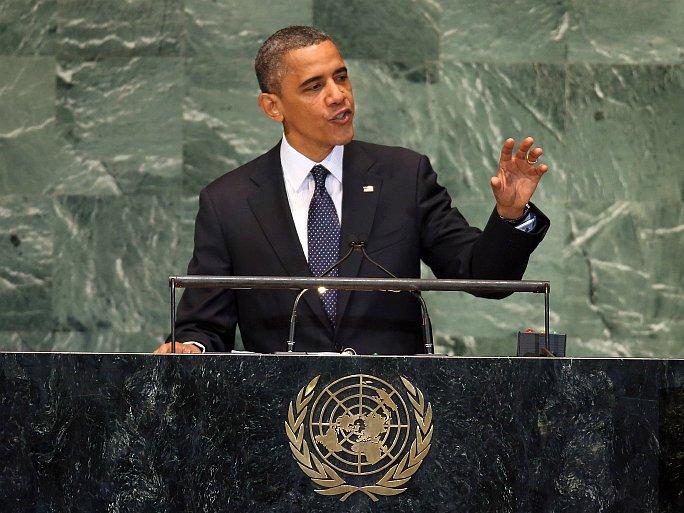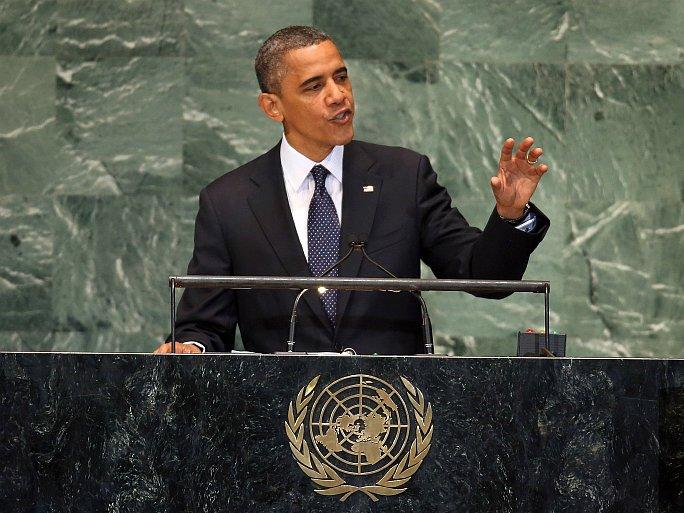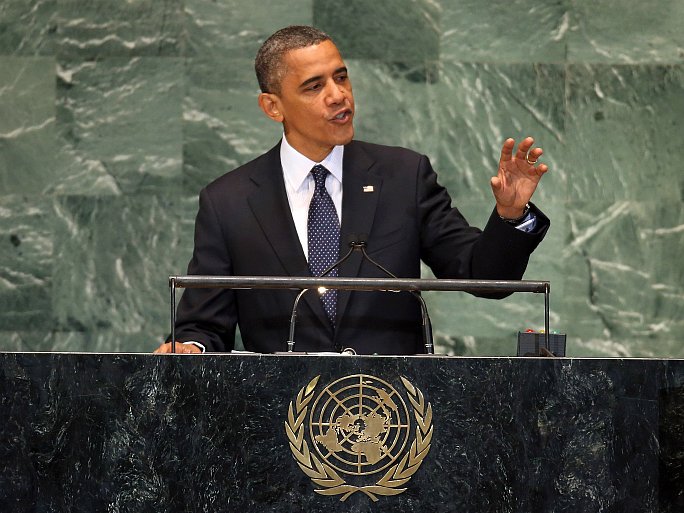WASHINGTON—In his speech to the United Nations Tuesday, President Obama focused on the turmoil in the Middle East to denounce intolerance, while making a case for free speech and the right to self–determination.
“Today, we must declare that this violence and intolerance has no place among our United Nations,” Obama said.
The president began by honoring U.S. Ambassador to Libya Christopher Stevens, killed in the attacks on the U.S. Consulate in Benghazi, describing similar attacks on U.S. facilities in Egypt, Pakistan, and Yemen as akin to assaults on the foundational values of the U.N.
“They are also an assault on the very ideals upon which the United Nations was founded,” he said, “the notion that people can resolve their differences peacefully; that diplomacy can take the place of war; that in an interdependent world, all of us have a stake in working toward greater opportunity and security for our citizens.”
The president addressed the most pressing issues in the Middle East, telling world leaders that America would bring sanctions against those who “persecute” in Syria and support those who work for the “common good.”
He reaffirmed his administration’s position on Iran, saying, “The United States will do what we must to prevent Iran from obtaining a nuclear weapon.”
He called on Israelis and Palestinians to leave behind the years of conflict and reiterated U.S. policy.
“The road is hard, but the destination is clear—a secure, Jewish state of Israel and an independent, prosperous Palestine,” he said.
Tolerance
The “crude and disgusting” video that sparked the attacks did not represent the views of Americans, just as the extremist attack on U.S. facilities did not represent all believers of Islam, he said, reminding world leaders that many more followers of Islam have died as a result of Islamic extremism than followers of other beliefs.
Obama added that the United States would not ban the video, however, because freedom of speech is foundational to American values even if the views expressed are sometimes offensive.
“The strongest weapon against hateful speech is not repression; it is more speech—the voices of tolerance that rally against bigotry and blasphemy, and lift up the values of understanding and mutual respect,” he said.
Obama warned that “intolerance and violence” against the West might initially be useful to bridge internal divides, but that it would ultimately lead, “not to strength and prosperity but to chaos.”
He pointed to the peaceful protests of the Arab Spring, saying that they had brought “more change to Muslim–majority countries than a decade of violence,” but conceded that to achieve “real freedom” was “hard work.”
“It depends on the freedom of citizens to speak their minds and assemble without fear, and on the rule of law, and due process that guarantees the rights of all people,” Obama said.
In a nod to rising tensions in the South China Sea, Obama called on leaders not to stoke nationalism to distract from economic and leadership woes.
“Those in power have to resist the temptation to crack down on dissents. In hard economic times, countries must be tempted—may be tempted to rally the people around perceived enemies, at home and abroad, rather than focusing on the painstaking work of reform,” he said.
Governments, he said, must build trust and serve their people, not their own interests.
“So much attention in our world turns to what divides us. … But when you strip it all away, people everywhere long for the freedom to determine their destiny; the dignity that comes with work; the comfort that comes with faith; and the justice that exists when governments serve their people—and not the other way around,” said Obama.
The Epoch Times publishes in 35 countries and in 19 languages. Subscribe to our e-newsletter.






